Chief Justice, Paramount Ruler Elect
Emmanuel Joel Igoniwari was from Otuedu community of Ogbia Local Government area of Bayelsa state. He was a respected Jurist from the Niger delta that went on to become the second (2nd) Chief Judge of Bayelsa state, Nigeria and His Royal Majesty Elect of Ogbia Kingdom.
Synopsis
Late Chief Justice Emmanuel Joel Igoniwari was a distinguished jurist from the Ogbia kingdom. He began his career as a pioneer typist with the Niger Delta Development Board. Through sheer determination, he achieved his A/Level papers with a grade one in 1972 and later obtained his Law degree from the University of Lagos in 1976. His judicial journey saw him become a Judge of the High Court of the old Rivers state, and eventually, the Chief Judge of Bayelsa state following the retirement of Justice David Koripamo Ungbuku, the pioneer Chief Judge of Bayelsa state.
Tragically, Chief Justice Igoniwari passed away on the bench in 2007. In his community, he was elected Royal Majesty of the Ogbia kingdom, though he was not formally coronated before his death. His contributions to the judiciary in Nigeria were significant, as he authored judicial texts, facilitated infrastructure development, and improved staff welfare. He was known for his benevolence, helping many indigent individuals in his domain. Despite his generosity, some elites in his community misunderstood his actions as highhandedness and envied him.
Notably, Chief Justice Igoniwari played a pivotal role in the political rise of Goodluck Jonathan, supporting his nomination as Deputy Governor alongside Chief Diepreye Solomon Peter Alamieyeseigha in 1999. Igoniwari’s steadfast support and intense lobbying were crucial in securing Jonathan’s nomination, despite opposition from some elites who preferred a candidate from Nembe/Brass.
Chief Justice Igoniwari was an Anglican and a polygamist, with six biological children. He passed away at the age of 63.
Parents/Birth
He was born to the family of Mr. Joel Igoniwari and Mrs Salomey Itemumu Joel Igoniwari of Otuedu, Ogbia in the present day Ogbia local government area of Bayelsa state on 1st January, 1944. As a man he was named Emmanuel and was also the Sixth child of Eight children.
Early Life
He started his primary education in 1951 at St. James school, Anyama, Ogbia and completed his primary education in 1958 at Bishop Crowther Memorial School, Abonnema, in the present day Akuku-Toru Local Government Area of Rivers state, obtaining his first school leaving certificate there also.
On the invitation of his brother, the young Emmanuel Igoniwari arrived Lagos in December 1958, where he began a new chapter in his life, it where it became manifest that he was a child of destiny. From 1959-1961, he was constrained by circumstances to engage in any menial job(s) that he could find, ranging from being a vendor to houseboy, and to itinerant casual laborers, his client included European-owned companies and the ships at the wharf, all in the Apapa axis of Lagos.
Formal employment and post primary education
While other children of his age were at school, he was busy trying to make a living from which he was able to pay five shillings a month for evening classes in typewriting. As he continued his classes, he also registered with the labor office for possible employment. In 1991, God intervened in his favour, when from a crowd of applicants in far away Lagos, who were tested by the P&T (now defunct Post and Telecom), he was among the two that passed that test. When the two successful applicants were shown to the Postal Director, one Mr Ogundeji, he stood by and ensured that they were given tables and typewriters to start work immediately. That would be a miracle day. Nine months after the miraculous incident, young Emmanuel Igoniwari was employed as an upgraded typist in the newly created Niger Delta Development Board (NDDB), and transferred to its Port Harcourt headquarters. His only paper qualification then was the First School Leaving Certificate.
Soon after he settled down in his new job, there was a positive Tsunami in his educational career, without passing through the four walls of any secondary school, the young man’s new working environment, an organization that employed top international experts from England, Scotland, Germany, Holland, America, Italy etc influenced him to a large extent. This environment reinforced in him the sterling qualities of discipline, punctuality, hard work and civility. He continued with, and was committed to his part-time studies. By 1965, he had passed the following examinations:
1. GCE O/Level in five (5) subjects at a sitting, including Pure mathematics
2. Royal Society of Arts (Intermediate Typewriting at 35 words per minute)
3. Royal Society of Arts (Shorthand at 100 words per minute)
He was rewarded for these achievements by being promoted to the position of Stenographer.
The Nigeria civil war caused a break to his educational pursuit. After the war in 1970, he resumed reading and by 1972, the harvest was great achievements shown in his obtainment of the following:
1. G.C.E A/Level in 3 paper at a sitting
2. Royal Society of Arts (Advancement level Typewriting at 50 words per minute)
3. Royal Society of Arts (Advancement level Shorthand at 120 words per minute)
4. Part 1, Royal Society of Arts (Teachers’ Certificate)
It is note worthy that in the year he sat for the GCE A/Level, both the GCE A/level and Higher School Certificate were combined so that external candidates took the same examinations with the regular Higher school certificate candidates. The results, however, were amazing as one Agiobenebo (now a Professor or probably predeceased) and Igoniwari who were external candidates had the best results in the whole of Port Harcourt center. (Agiobenebo had three (3) Distinction and while Igoniwari had two (2) Distinction and a Credit).
These Herculean achievements earned him promotion to the position of Confidential Secretary Grade II and entitled him with a car. Though still a young man, he was not dazzled by the lure of owning a car, he instead took the challenge to further his education.
Tertiary education
With the plethora certificates/qualifications already obtained. He was determined to improve himself. This quest spurred him to apply to some Universities within and outside Africa. Consequently, he was offered admission to study Law in at least five universities which included:
1. University of Lagos
2. London School of Economics
3. Makaere University, Uganda
4. Royal University of Malta
However, his background and family commitment did not encourage him to go far, and he settled for the University of Lagos where he obtained his LL.B (Hons) degree in 1976. Subsequently, he enrolled with the Nigerian law school, Victoria island, Lagos where he qualified as a Barrister and Solicitor of the Supreme Court of Nigeria and was called to the Nigeria bar in 1977. His unquenchable thirst for knowledge further spurred him to go for his Masters degree in Law, he read for and obtained his LL.M from the Ahmadu Bello University Zaria in 1986.
Igoniwari’s defense of his LL.M thesis at the University of Ife (not Ahmadu Bello University Zaria) caused a stir and the panel headed by one Professor Fabunmi wooed him to pursue a teaching career and undertake a Ph.D programme. Suffice it to say that he resisted the offer, because of his concern for his family and his clientele in Port Harcourt.
Service at the bar
He had a busy successful private legal practice in Port Harcourt from 1978 to 1991. Nevertheless, he used his privileged position as legal practitioner to defend quite a number of times, precisely clients who were in no position to pay for his services. He was a defender of the poor and oppressed. His chambers was located at 54 Aggrey Road, Port Harcourt as at the time.
Public service
The experience and exposure gained over the years, turned out to be quite helpful, whenever he was called upon to serve the public. He resuscitated the Rivers state government owned West Africa Glass Industry Limited as its Part-time Chairman between 1981 and 1982; He was appointed Chairman, Ogbia District Council (now Ogbia Local Government Council) in 1982.
He had a brief incursion into politics as he was elected into the old Rivers state House of Assembly where he was member from October 1983 to December 1983 when the democratic process was halted by the Military.
Career as a judge and chief judge
Barrister Emmanuel Joel Igoniwari was appointed a Judge of High Court of Rivers State on 18th December, 1991 by the late Justice Donald Graham Douglas; and having moved to Bayelsa state on its creation in October 1996, he was appointed Chief Judge of Bayelsa state on the 27th May, 2003 after the retirement of late Justice Koripamo Ungbuku.
In fact, he was the first Ogbia man to be made a High Court Judge. Sometime before his appointment to the exalted position of a chief judge, the temptation to undertake the Ph.D programme in Law resurfaced and he was admitted by the University of Calabar as a part-time student. Weighing the realities of the situation and nothing that his attention and time would be compromised, he found himself at the cross-roads; to be a mediocre Judge reading for a Ph.D degree in Law or to be the dedicated Judge he had been. He opted for the latter.
As a Judge, he exhibited strong principle of life anchored on integrity, humility, hard work and selfless service, a sharpened sense of justice and fairness, a total abhorrence of bribery and corruption and other
corruptible influences. The greatest challenge in his career life as a Judge and Chief Judge did not arise from the orthodox adjudication in court, but from an area of the law he regards as unsettle or recondite. These challenges came from election petition tribunals and the impeachment of public office holder (one of such was the impeachment of the Late Chief D.S.P. Alamieseigha the then Governor of Bayelsa). These are areas in which the integrity or otherwise of a judge can easily be scrutinized as well as sorts of strategies employed to compromise a Judge.
He served in Six election petitions tribunal, in the course of his service as a judge in the following states: Kano (1998); Borno (1999); Niger (1999), Delta (1999), Edo (1999) and Osun (2003). He served as chairman in three and member in the other three election petitions tribunal. The scenario of an election petition tribunal gives the semblance of warfare.
Therefore, anybody who serves in as many as he did, throughout the length and breath of the country without blemish, and whose integrity was impaired in the performance of his duties as a judge is worth his salt.
Authorship
Despite his tight schedule, late justice Emmanuel Joel Igoniwari made out time to make permanent contributions in the legal history of Nigeria and the world by writing the following books:
1. A Handbook on Pleadings
2. Land tenure law of Rivers state as a co-author
The book “A Handbook on Pleadings” was published in 2004 i.e. before the latest attempt to fashion out uniform rules. Nevertheless, the book is still generating waves, particularly its chapter on the extended use of originating summons as possible useful further abridgment of some of the provisions in the proposed new uniform rules.
As a community leader/traditional ruler
In appreciation of his services to his community. Late Hon. Justice Emmanuel Joel Igonowari was Honoured by his Otuedu community with a Chieftaincy title as the EDU I OF OTUEDU in December, 1991. Soon after he became the first High Court Judge of Ogbia extraction, in the same month and year. This event added the nomenclature “Chief” of his name. About three years later, in December 1994, his performance in this position attracted more honors and glory from other communities of Ogbia kingdom, and indeed the kingmakers of the kingdom, whereupon he was officially made OBANOBHAN-ELECT (King Elect) OF OGBIA KINGDOM. The Ogbia brotherhood, kingmakers, sons and daughters and indeed the entire Bayelsa state were only waiting for this illustrious son of theirs to retire from public service, so as to continue serving them fully in another capacity as their king and traditional ruler before the cold hands of death struck.
Community Achievements
For his native Otuedu community, their late EDU I attracted certain development projects in the community. Apart from the projects from the judiciary, he was also instrumental to the construction of the community secondary school, and the circular road projects in Otuedu amongst others.
Being a self-made man, late Hon. Justice (king) E.J Igoniwari was a mentor and role model to many people who had mingled with him. Having not been privileged to attend any secondary school in his days, his dream and wish was that every child should be educated, but he could only do what was within his limited resources. He offered scholarships to as many as he could, excluding his relations, he sponsored at least fifty-seven underprivileged children in some Ogbia communities: Eight (8) in Ologi; Six (6) in Otuogidi; Five (5), each in Ayakoro and Ayama; Three (3) in Okeke and Thirty (30) in his native Otuedu.
His legacies
Late Hon. Justice (King) Emmanuel Igoniwari was not just simple, honest and principled, he was also a gentleman driven by the fear of God. He was equally a man of character, a role model, a legal icon, author, philanthropist and a friend and father of the fatherless. His legacy can be divided into three parts to wit; as a lawyer/politician; as a jurist/administrator; and as a community leader/traditional ruler. In any of these capacities, he was not only perceived as a man of vision and purpose, but he was found to be competent, worthy and humane.
Building on the proper and solid foundation laid by his predecessor (late Chief Justice ), his achievements in the Bayelsa state judiciary were unprecedented. Even though as a judge, he could be firm, as an administrator, his heart was a flowing fountain filled with the milk of human kindness. In this position and others, he exhibited one of his greatest virtues compassion. He had a Christ-like disposition for the needy and the underprivileged.
The lives of all staff of Bayelsa state judiciary were touched significantly. He introduced a Bus Service System for them. He saw to their promotion, and reviewed upward allowances for the effective running of the courts. To improve staff welfare and morale, between 2005 and 2006, he devised and initiated the construction of housing units. The construction of four (4) blocks of thirty-six (36) Two (2) Bedroom flats. In the state capital Yenagoa, intended for junior staff grade level seven and below stands as a testimony. This is arguably unparalleled any where in the states’ judiciaries in the Nigerian Federation.
In bringing justice closer and thereby making it cheaper to the citizens of the state, he had ensured the construction of more courts in different parts of the state; some of these are the three new High Courts in Yenagoa which are located in different parts of the state; these three new high courts in Yenagoa are already in use; one modern high court in ogbia town, two magistrate courts in Sagbagria and Otuedu, and one customary court in Ekeremor which are ready, but yet to be commissioned. One Modern High Court in Amassoma and a magistrate court in Nembe, as well as a staff quarters at Otuedu are still under construction. The new high court complex in Yenagoa metropolis which he inherited from his predecessor has also progressed to an advanced stage.
He was a devout christian and a member of the prayer band team of St. Peters Anglican Church, Yenagoa. His services in the vineyard of the lord need not be mentioned here, as he always cautioned that such fell within the realm of ‘his relationship with God’. Generally, called ‘Papa’ by his relations, he was a loving father to, not only his children, but to all who came across him.
His Death
He took ill in august, 2006, and having undergone medical checks and treatment without improvement, he was rushed to London, United Kingdom in October, 2006 for treatment. He was later referred to a southern African hospital where he died on the 4th of May, 2007.
His Family
Emmanuel Joel Igoniwari was a polygamist with Nine (9) children. He had two wives (Mrs Victoria a Igoniwari first wife was from Otuogidi community and Mrs Akinamobebh Igoniwari, his second wife was from Otuedu). Sadly, they are both dead.

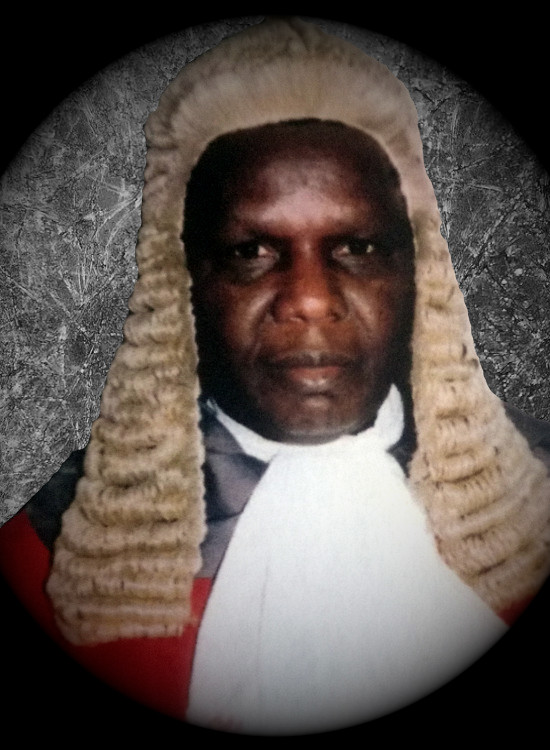
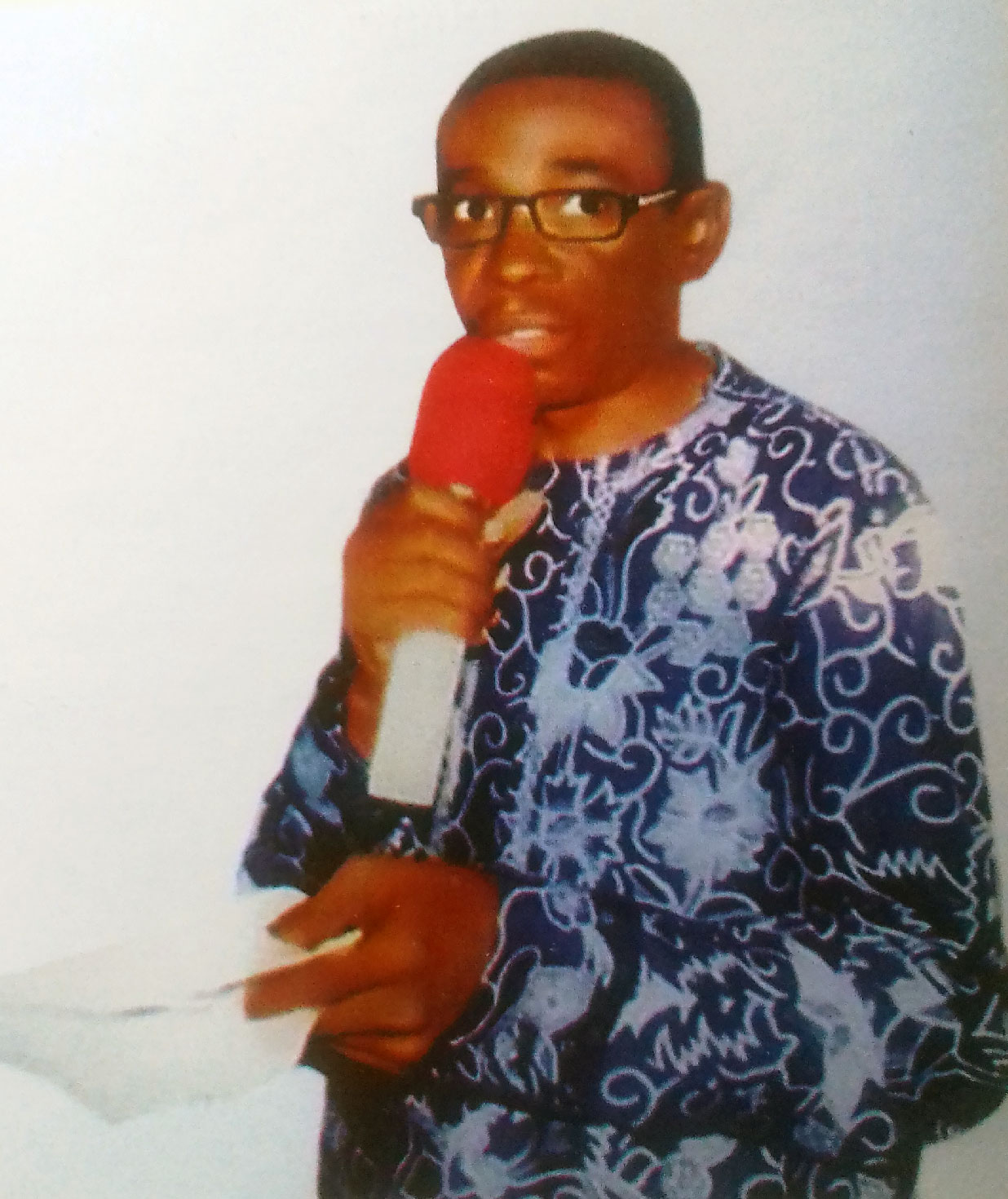

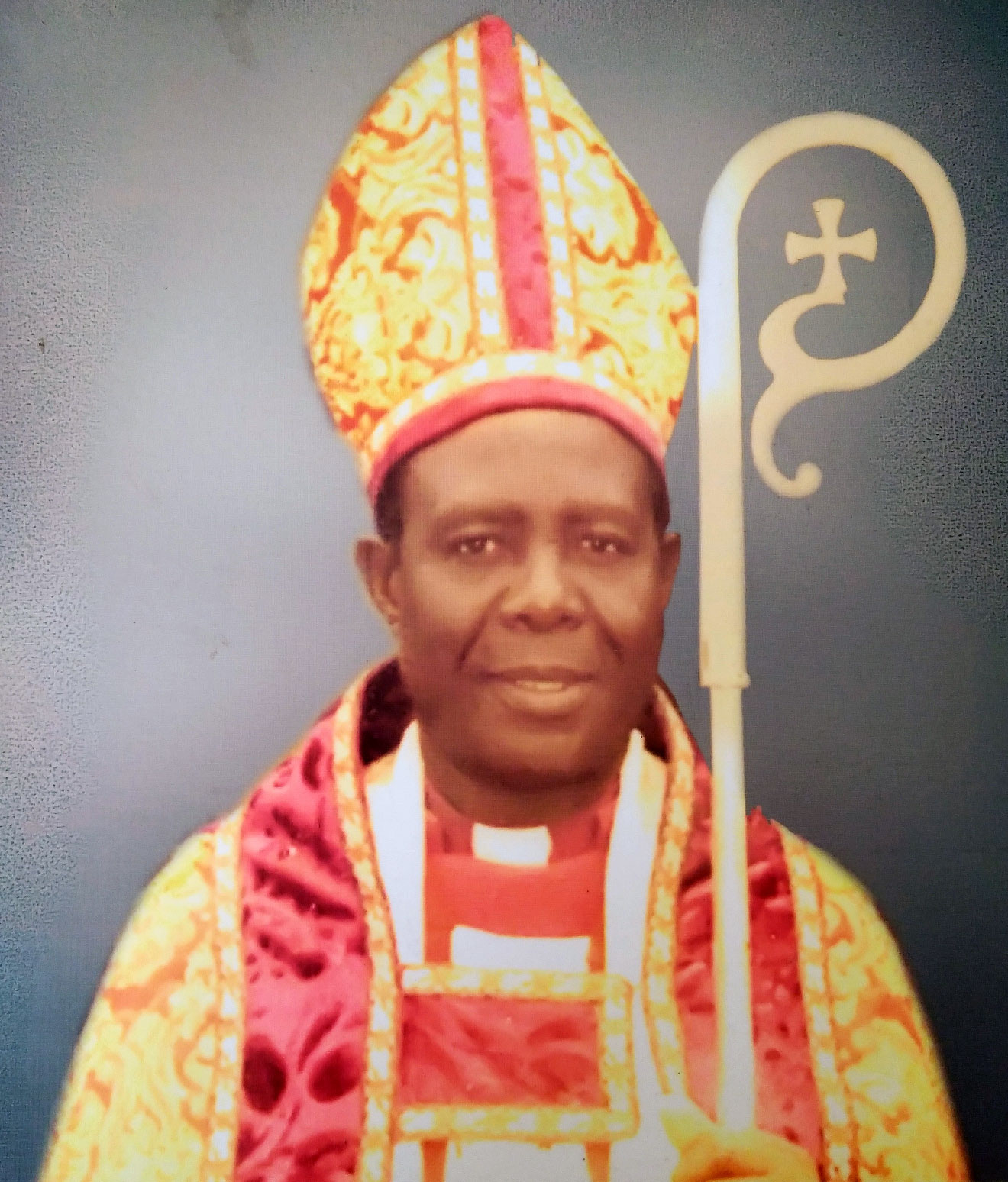

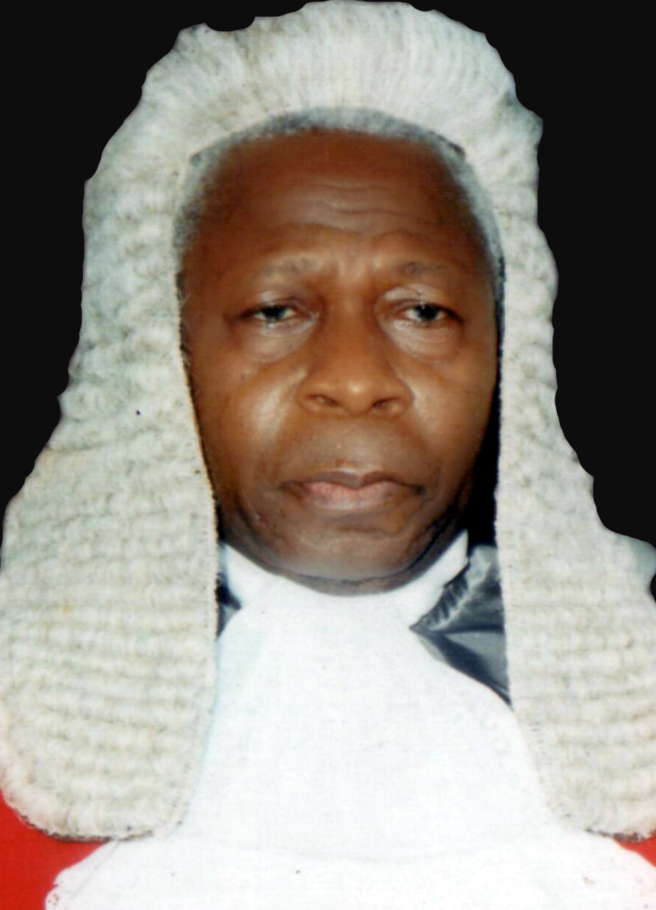
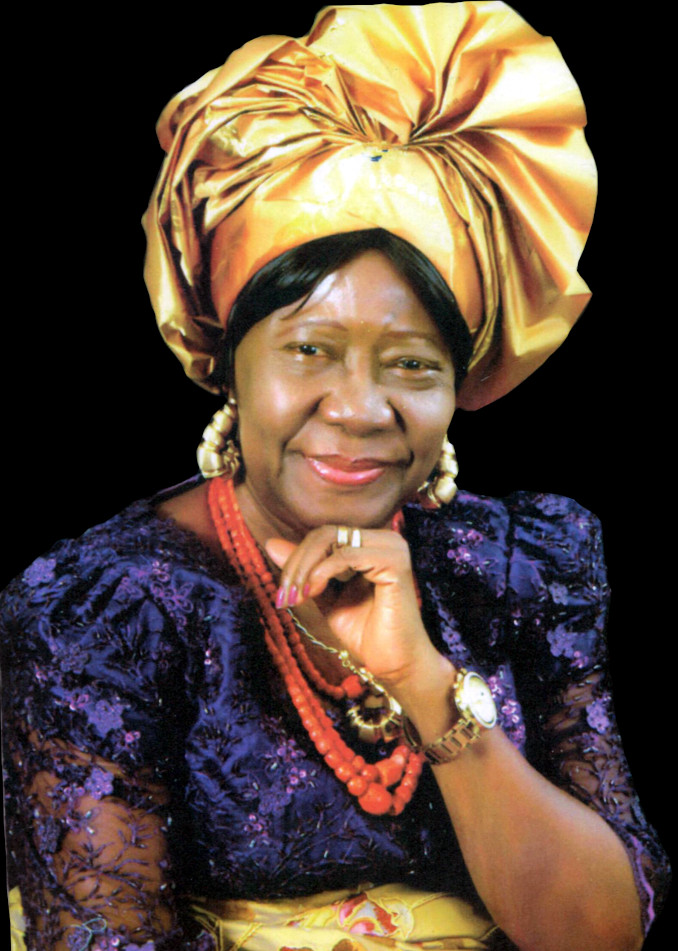
1 thought on “Emmanuel Joel Igoniwari (1944-2007)”